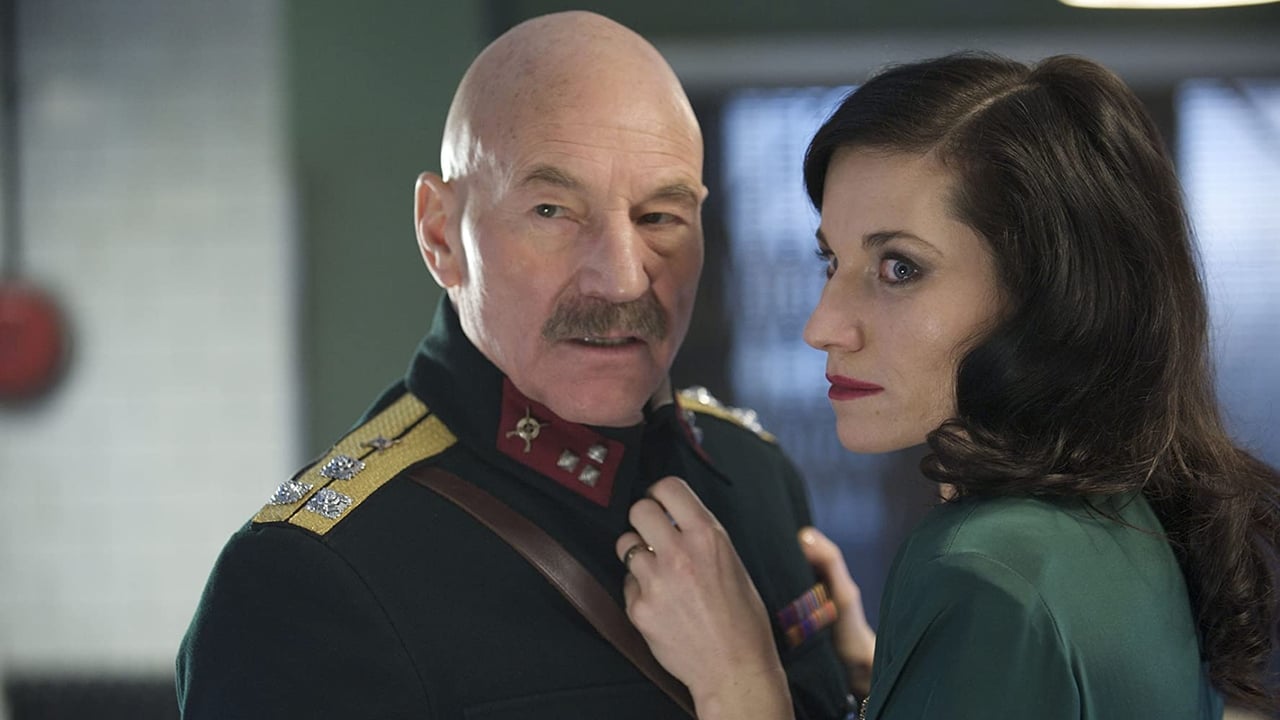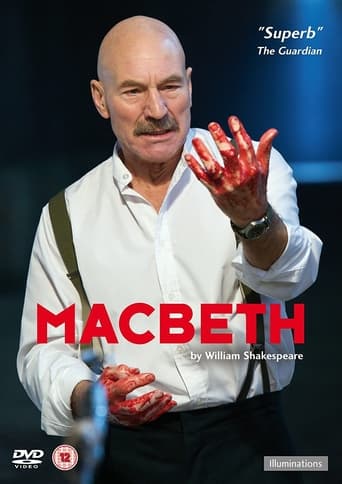

This movie was so-so. It had it's moments, but wasn't the greatest.
... View MoreMostly, the movie is committed to the value of a good time.
... View MoreA terrific literary drama and character piece that shows how the process of creating art can be seen differently by those doing it and those looking at it from the outside.
... View MoreThe movie really just wants to entertain people.
... View MoreThis BBC production is upsetting, unnerving, often horrifying, unforgettable, and very difficult with which to find flaw. It's set it Soviet Russia, with Macbeth as a Stalin-like figure, engendering imagery that is both horrifying and picture-perfectly realized. One of the great advantages of this film is that is it a (very cinematic) recorded version of a stage production after a long and successful run -- so each member of the ensemble cast in intimately familiar with his or her role and its nuances. Rupert Goold proves himself both a "visionary" director and an actor's one, as every performance is shudderingly truthful and inventive -- and both performances and settings are rife with small interpolations that only add substance and effectiveness to the production -- Macbeth talking to the two overwhelmed murderers while making a sandwich, Banquo killed on a train, the porter bitter and delivering his speech while drinking and watch Soviet parades. Chief among the cast, of course, is Sir Patrick Stewart, who immediately cements himself as a great Macbeth. He displays extraordinary dynamism, range, understanding, clarity, and emotional truth in the role. His Macbeth is forceful and powerful but at the same time vulnerable and uncertain. We feel first his struggle, then his guilt and of all his pervading mania for certainty. The moment just before his death when he finally dismissed his grasping at the vision of the (unnervingly nurse- attired witches) for that certainty with a still "Enough" is astounding. I have difficulty imagining a more affecting rendition of the "tomorrow, and tomorrow, and tomorrow" speech than Sir Patrick's absolute nihilism here. Suzanne Burden is also a horrifying Lady Macbeth; her honest hunger for power through her husband, her recoil at his disruption of dinner with his vision of Banquo making her not sympathetic but comprehensible as a real human and thus the more uncanny. Michael Feast also deserves special mention as an excellent Macduff, carrying off an amazing silence after he learns the death of his sons. The Soviet trove of imagery is rich, enhancing the play with suggestions of history that we may know (Siward happens to remind me a lot of Shostokovich here) lending it a well-realized look of decay and hopelessness. Devices such as the Stalinist-style portrait of Macbeth, the rolling tape, the bugs, &c are recreated with precision, fall into that "uncanny valley" with their level of familiarity and hint parallels with the events of the play without intruding on them. In all, great production and direction as well as performances from a tight ensemble cast -- all brimming with creativity from all edges -- create a great production of the play that is a searing, nightmarish vision, complimented by a performance in the lead role that seems to me to be for the ages, and is now my favorite of those I've had the chance to see. There have been and will be many performances of Macbeth that are _different_ than this one, but I doubt I'll see one that is _better_.
... View MoreI get the point that other reviewers have made, a lot of Shakespeare's works do work in a modern setting. But to me, it only works if you also update the dialogue. I found the text jarring with the setting, the exact text (as far as I could tell) spoken in an utterly different context. Zero believability. No basis for a suspension of disbelief.If they'd had the sense to update the language a bit and make it fit a 21st century authoritarian regime it might have worked a lot better, at least for me.It also lost the clues in the prophecies that fool Macbeth, that could have been included without difficulty.
... View MoreI love all Shakespeare, but for some reason Macbeth is not among my favorite works of the Bard. Nor do I think that the brilliance of Shakespeare's darker plays are usually well-handled by directors. Consequently, I am difficult to impress when it comes to individual film or DVD productions of the play. I consider Polanski's very traditional 1971 version to be the best (a 9 rating), and my second favorite version is Jason Connery's underrated and rare 1997 production (which I rate an 8). For me, both Orson Welles', Ian McKellen's, Jeremy Brett's and now Patrick Stewart's versions rate no higher than a 7 out of 10, and that goes for Kurosawa's Throne of Blood as well. They're good, but considering how marvelously Shakespeare CAN be staged or filmed (think Branagh or Taymor), they are just not THAT good. Nicol Williamson in the BBC version was very underwhelming to me, although Jane Lapotaire as Lady Macbeth was at least as good as, perhaps better than, Francesca Annis in the Polanski version.What was wrong with Patrick Stewart's 2010 version? It had many good things and scenes in it. But I found it to be too dark (yes, such a thing is very much possible) and in places too dull and drawn-out. I liked the whole Stalin motif, but setting the play in an underground bunker just smacks of low-budget requirements. That it all sort of took place in hell was perhaps an interesting take, but it's not the kind of thing that resonates with me. I want an interesting, variegated, poetic environment; one that does Shakespeare's words justice, and provides an interesting interpretation of the scenes and phrases. A limited environment of darkness does nothing of the sort. But perhaps this all owes to the budgetary restraints. I admit they did go far with little - there were some impressive scenes here and there.Comparing this production with Ian McKellen's 1995 Richard III movie is very apt; McKellen did enact Adolf Hitler; Stewart did enact Joseph Stalin. Both productions had a war motif, a tyrant motif, murderers serving the king, etc. It is hard to believe that McKellen's RIII performance did not significantly inspire this Macbeth.Is it worth your while? Definitely. It is made by people who have an obvious understanding of staging Shakespeare, which in itself is very good. However, a fabulous masterpiece it is not. Good, but not THAT good.
... View MoreA visually brutal adaptation of a theatrical production that combines the experience of stylized European director's theater with the documentary-film imagery of war, Stalinist totalitarianism, dystopian landscapes. The result is not as much a drama (although the acting itself is riveting) as a series of rapidly-changing tableaux that bring a striking newness to Shakespeare's language. Sir Patrick Stewart performs the role of a lifetime. As a Shakespearian actor, he manipulates Shakespeare's words so that they ring authentically, as if we are hearing them for the first time.This Macbeth channels the early Polish Roman Polanski, the imaginings of a Stanley Kubrick, the gritty grayness of 1984. It HAD to be shown as a PBS "Great Performances," for I cannot imagine it attracting a commercial audience, or even a film festival one, since it seems more like an brilliant artistic experiment that might have its most successful showing in the context of a museum. It is complex, worthy of endless dissection of words and images. My experience of it had less emotion involvement than fascination with creative process behind the filmmaking.
... View More